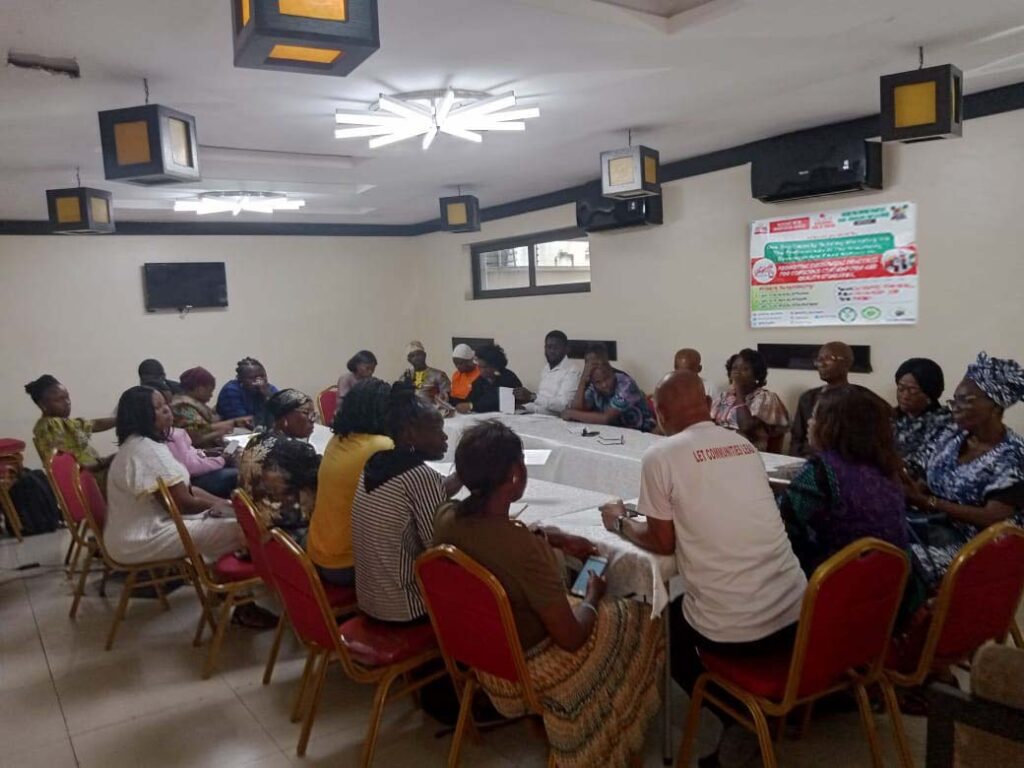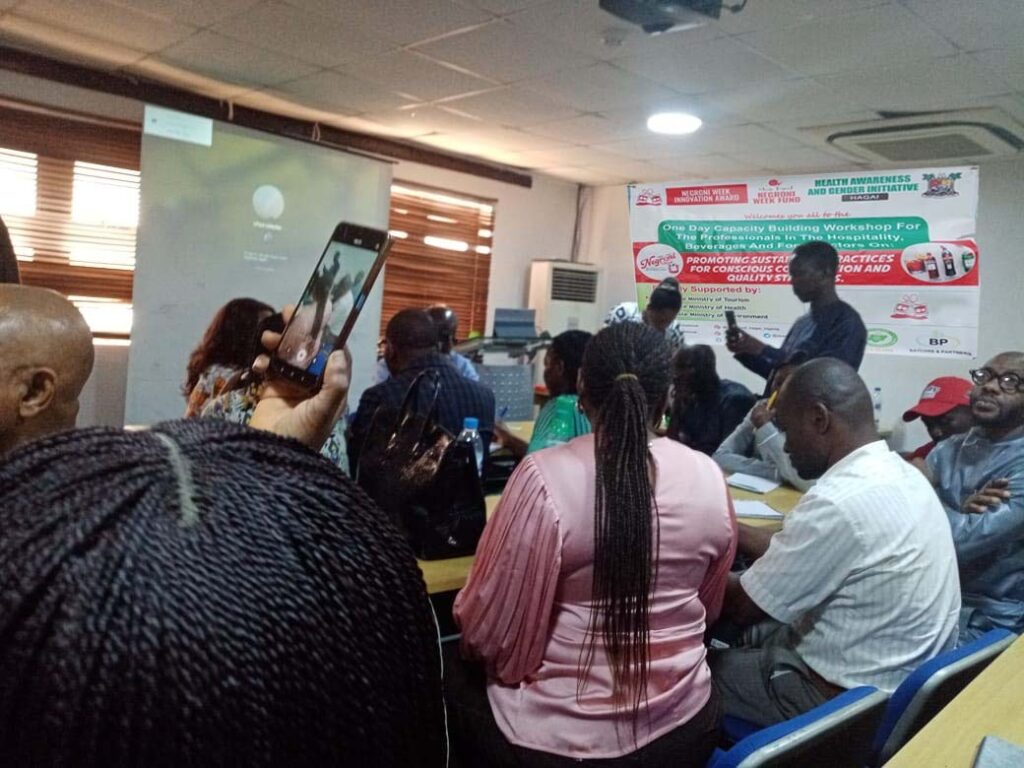By Damilola Abiola

Surulere, Lagos — In response to Nigeria’s growing concerns over food scarcity, inflation, and environmental degradation, 40 residents of Surulere Local Government Area gathered for a one-day workshop focused on “Conscious Consumption in the Nigerian Context.” Held on February 13, 2025, the workshop empowered participants to make sustainable lifestyle choices and become change agents in their homes and communities.
Organized by HAGAI, a community-focused organization, the event brought together 24 women and 16 men, an encouraging representation that reflects both genders’ vested interest in sustainability, especially regarding household consumption and waste.
“What we eat, how we buy, and what we waste reflects who we are as a people. In Nigeria today, being a responsible consumer is a survival strategy,” said Mr Adebayo Azeez Aladeyelu, Executive Director of HAGAI, during his opening remarks. He stressed that conscious consumption is no longer a luxury but a necessity in Nigeria’s economic climate.
Empowering Everyday Decisions
The lead facilitator, Mr. Oloidi Oladotun, anchored the training sessions with relatable discussions about Nigeria’s current food and waste issues. He highlighted how inflation has led to panic buying and overconsumption, ultimately causing food spoilage.
“Conscious consumption is not just about what you eat, it’s about asking, ‘Can I finish this before it goes bad?’” Mr. Oladotun said, urging participants to buy only what they need and reduce waste.
Using everyday examples, like sachet water, nylon bags, and takeout packs, he addressed the dangers of Nigeria’s single-use culture and called for practical alternatives such as reusable shopping bags, bulk buying with personal containers, and home-based waste separation.

Real Concerns, Real Solutions
Participants engaged in an interactive Q&A session, sharing their daily struggles and receiving pragmatic advice.
“What about electricity problems? How do we preserve food consciously without light?” asked Abass Morayo, an artisan.
“Good point. Conscious consumption also means adjusting your buying habits, buying smaller portions, using cool dry storage, and exploring sun-drying or smoking for preservation,” Mr. Oladotun replied.
Oshofisan Sunday, Communications Officer at HAGAI, emphasized the role of young people in driving cultural change. “Youth must lead from the front, on TikTok, in schools, and even at home,” he said, advocating for digital campaigns and peer influence.
Impact Backed by Data
The training was not only interactive but demonstrably effective. Pre- and post-training tests showed a significant improvement in participants’ knowledge, rising from an average of 48.35% to 72.90%.
A paired sample t-test (t = -18.76, p = .000) confirmed that the knowledge gain was statistically significant. “This is more than just talk, it’s transformation backed by data,” said Joy Olasuyi, Program Officer at HAGAI.
The Way Forward
The workshop concluded with a pledge session, where participants committed to adopting at least three conscious habits over the next 30 days. They were given toolkits, a waste tracking worksheet, and information on joining the upcoming Conscious Consumption Challenge.
The event reinforced a vital message: conscious consumption isn’t about perfection, it’s about awareness, small changes, and community action. And as Nigeria continues to grapple with economic and environmental hurdles, initiatives like this offer hope through knowledge and action.
“Let’s start with one small change at home or at work. Change begins with us, and we don’t have to wait for perfect systems to do the right thing,” Aladeyelu concluded.
